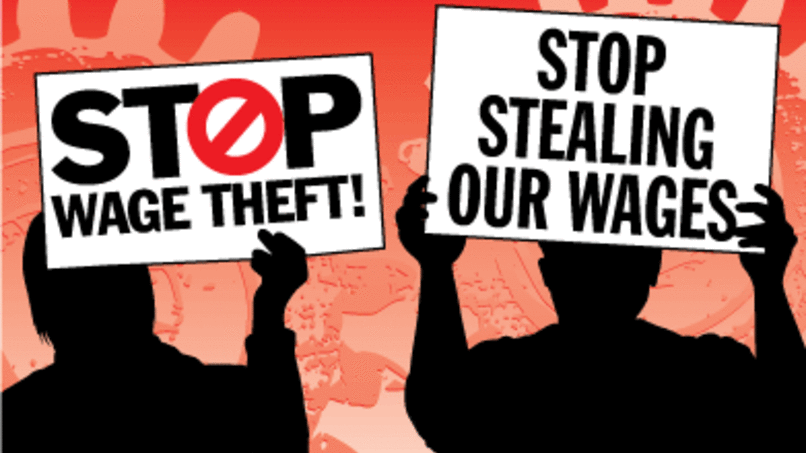The COVID-19 crisis has caused tremendous hardship for California’s workers. As businesses shutter or reduce their services and operations, employees face layoffs, heightened health risks in the workplace, and great uncertainty about their futures. Hunter Pyle Law has compiled the FAQ below to help you understand your rights in the workplace during the COVID-19 era. […]
Read more...Blog
Opposing Voter Suppression — The Battle for Georgia
I am writing this from the airport in Atlanta, where I have spent the past five days doing my best to help make sure that the Georgia Senate runoff elections were fair and that all votes were counted. The experience was both inspiring and chilling, so I am going to jot down some thoughts before the press of business and family in the “real world” re-consumes me.
First off, a disclosure: I believe very strongly that the voting process should be as easy as possible. In college (before the internet ruled our lives), I volunteered for a small organization that was trying to get the local city council to adopt a measure that would study, and, hopefully, implement a process by which voters could cast their ballots by telephone. That’s right: pick up the phone, enter your id, cast your vote, and, presto! You are done. No line, no worrying about signatures, no hassle. Despite our best efforts, and many long hours spent gathering signatures in the frigid Colorado winter, the effort failed. (Its leader, a fellow nicknamed “Evan from Heaven,” then went back to busking on the local pedestrian mall.) Continue reading “Opposing Voter Suppression — The Battle for Georgia”
Read more...COVID-19 FAQ
The COVID-19 crisis has caused tremendous hardship for California’s workers. As businesses shutter or reduce their services and operations, employees face layoffs, heightened health risks in the workplace, and great uncertainty about their futures. Hunter Pyle Law has compiled the FAQ below to help you understand your rights in the workplace during the COVID-19 era. […]
Read more...California Resident Managers’ Workplace Rights
Live-in resident managers face a unique challenge: their bosses are often also their landlords. California law requires an individual to live on the premises if a building has sixteen (16) or more units. Cal. Code Regs. tit. 25, § 42. These individuals are often referred to as resident managers. Resident managers carry out various job […]
Read more...New Amendment to Existing Law Strengthens Rights of California Employees Who Enter Into Settlement Agreements with Their Employers
The majority of disputes that arise in the workplace and proceed to litigation find their resolution not at trial, but in a settlement—agreed to by the employer and the employee and hopefully beneficial to both.
Because so many cases end in settlement, the terms of the settlement agreement become crucial for ensuring a just outcome that is fair to both parties. This is especially so because the power dynamic in negotiations between employers and their employees is often skewed in favor of the employer.
Read more...Do California’s Wage and Hour Laws apply to Workers who live in other States or who travel outside of the State for work?
California’s laws are among the best, if not the best, for workers in the United States. But do those laws apply to workers who live in other states? And how about workers who live and work in California, but also work in other states?
Oman v. Delta Air Lines and Ward v. United Airlines, two 2020 decisions from the California Supreme Court provide some guidance with respect to those questions. Because they build on an earlier case, Sullivan v. Oracle (2011) 51 Cal.4th 1191, 1201, we will start our analysis there. Continue reading “Do California’s Wage and Hour Laws apply to Workers who live in other States or who travel outside of the State for work?”
Read more...Disabled Prison Guard Wins his Third Appeal Against the California Department of Corrections and Rehabilitation

Proving Unpaid Wages without Records: A Roadmap for Claims under California and Federal Law
Wage theft, or situations in which an employer fails to pay its employees for some or all of the wages of that they earned, has gotten more attention in recent years. (See, for example, https://www.kqed.org/news/11780059/were-being-robbed-california-employers-who-cheat-workers-often-not-held-accountable-by-state.) This post explores how workers battling wage theft can prevail even when there are no exact records showing how much they are owed.
Can They Fire Me for Complaining About Coronavirus? Your Right to a Safe Workplace in California
Hunter Pyle Law has received a number of calls from workers who are being targeted for retaliation after complaining that their workplace was not safe during the COVID-19 pandemic. This post explores some of the California laws that protect such workers. In short, as explained below, workers in California who speak out against unsafe conditions […]
Read more...Expanded Rights for Employees during the COVID-19 Pandemic
The U.S. Department of Labor posted a temporary rule on April 1, 2020 that provides most employees impacted by the coronavirus with some much-needed benefits under the Families First Coronavirus Response Act (FFCRA). These benefits include public emergency health leave under Title I of the Family and Medical Leave Act (FMLA) and emergency paid sick […]
Read more...

